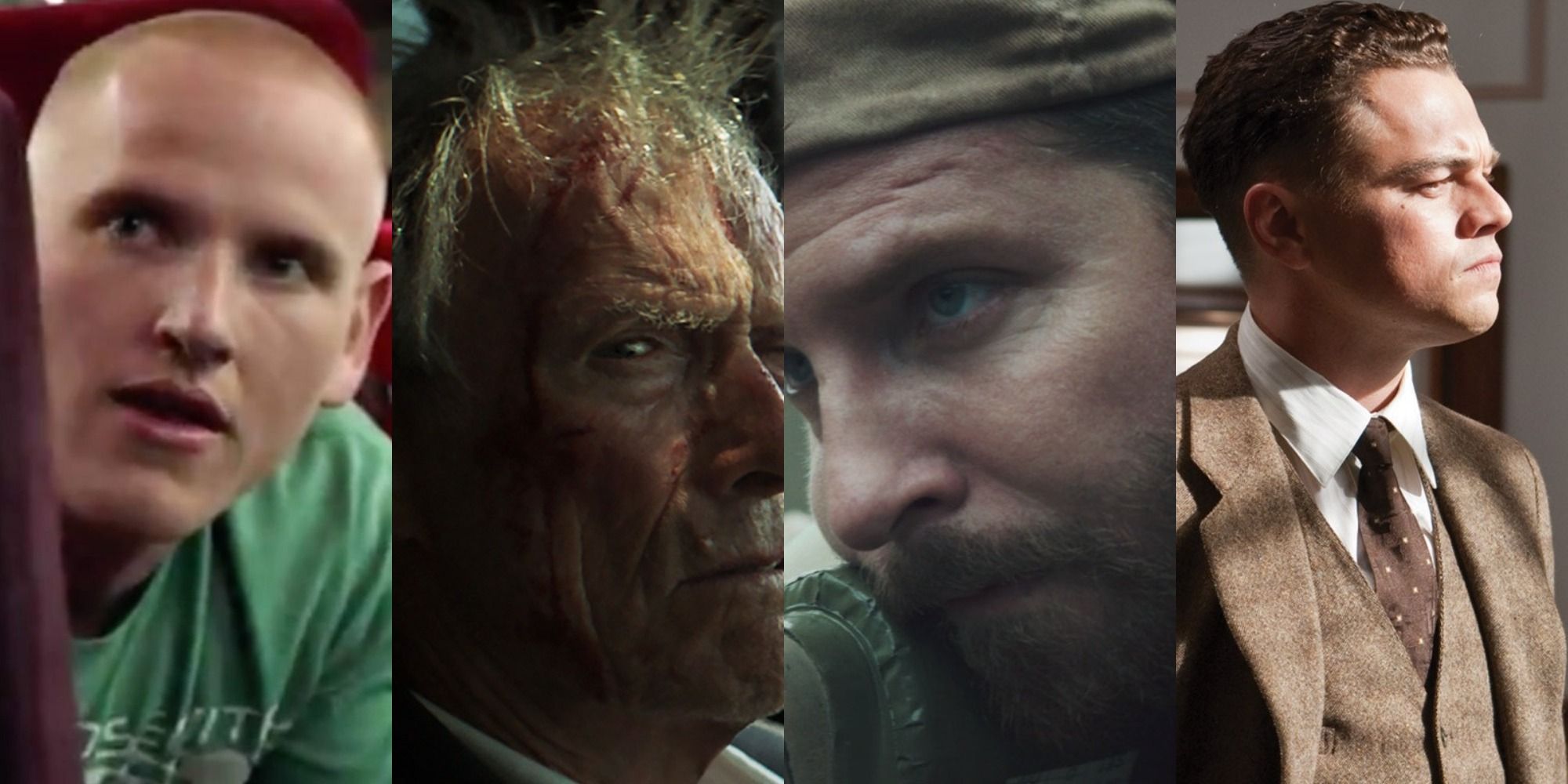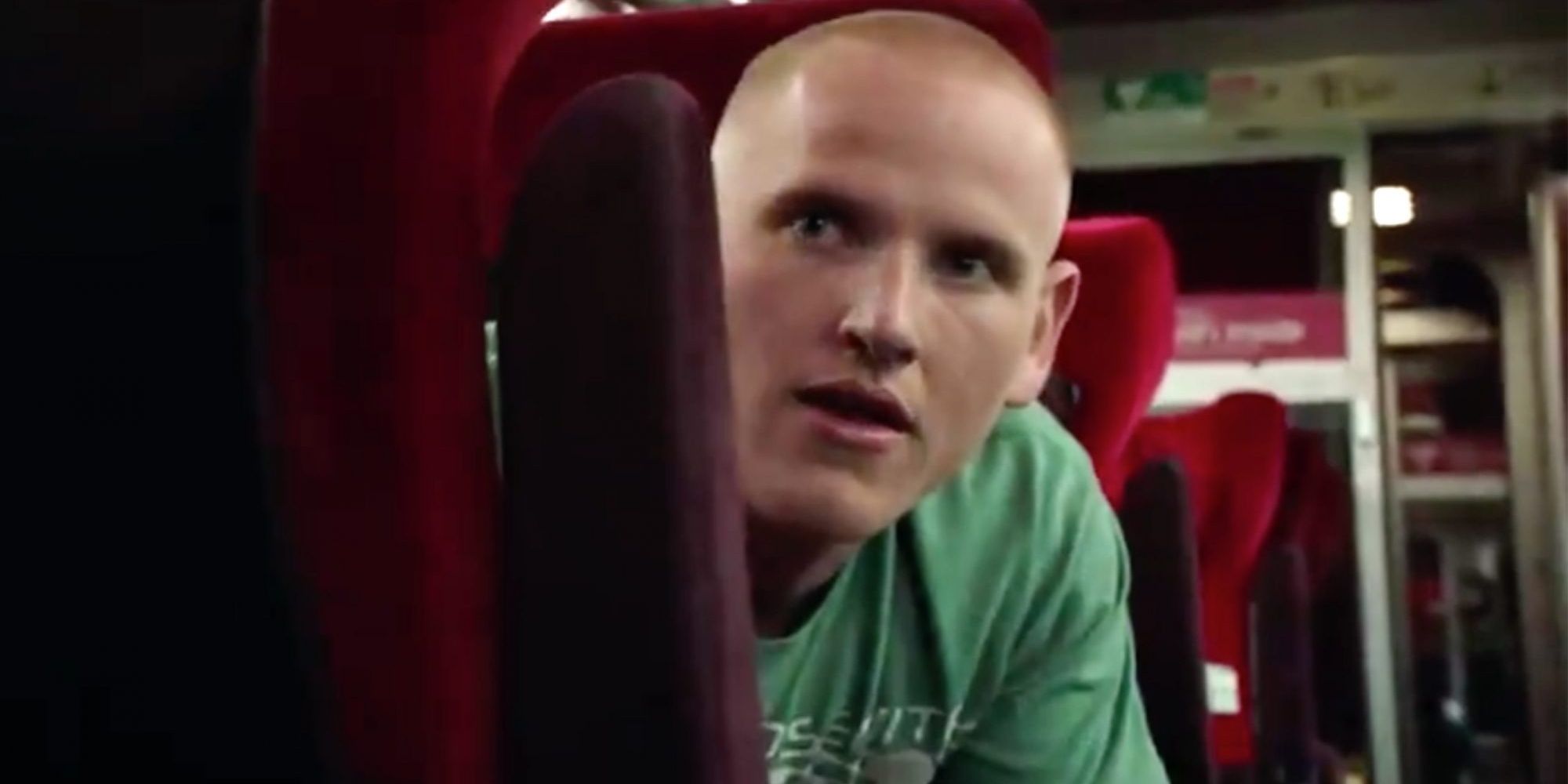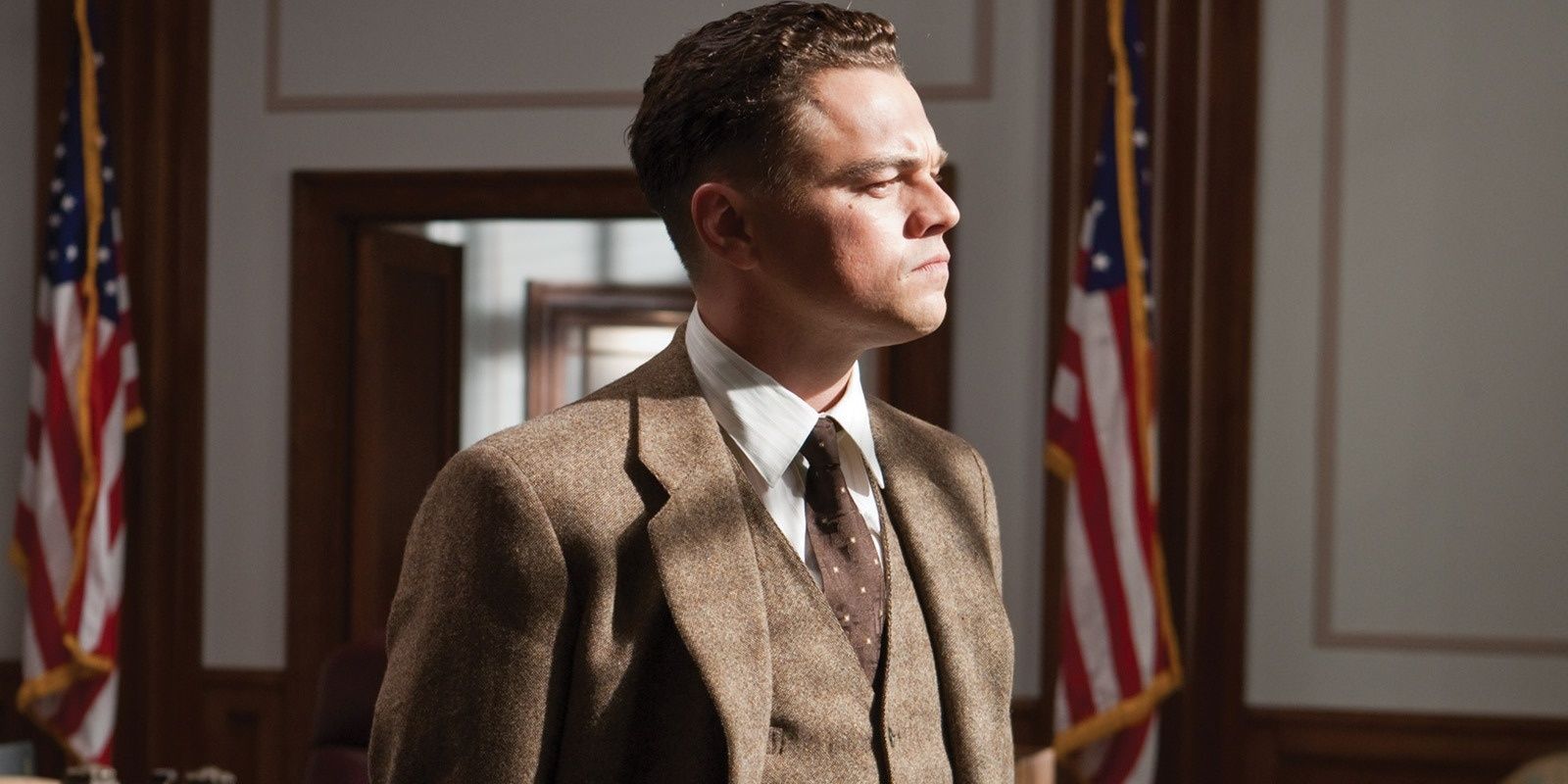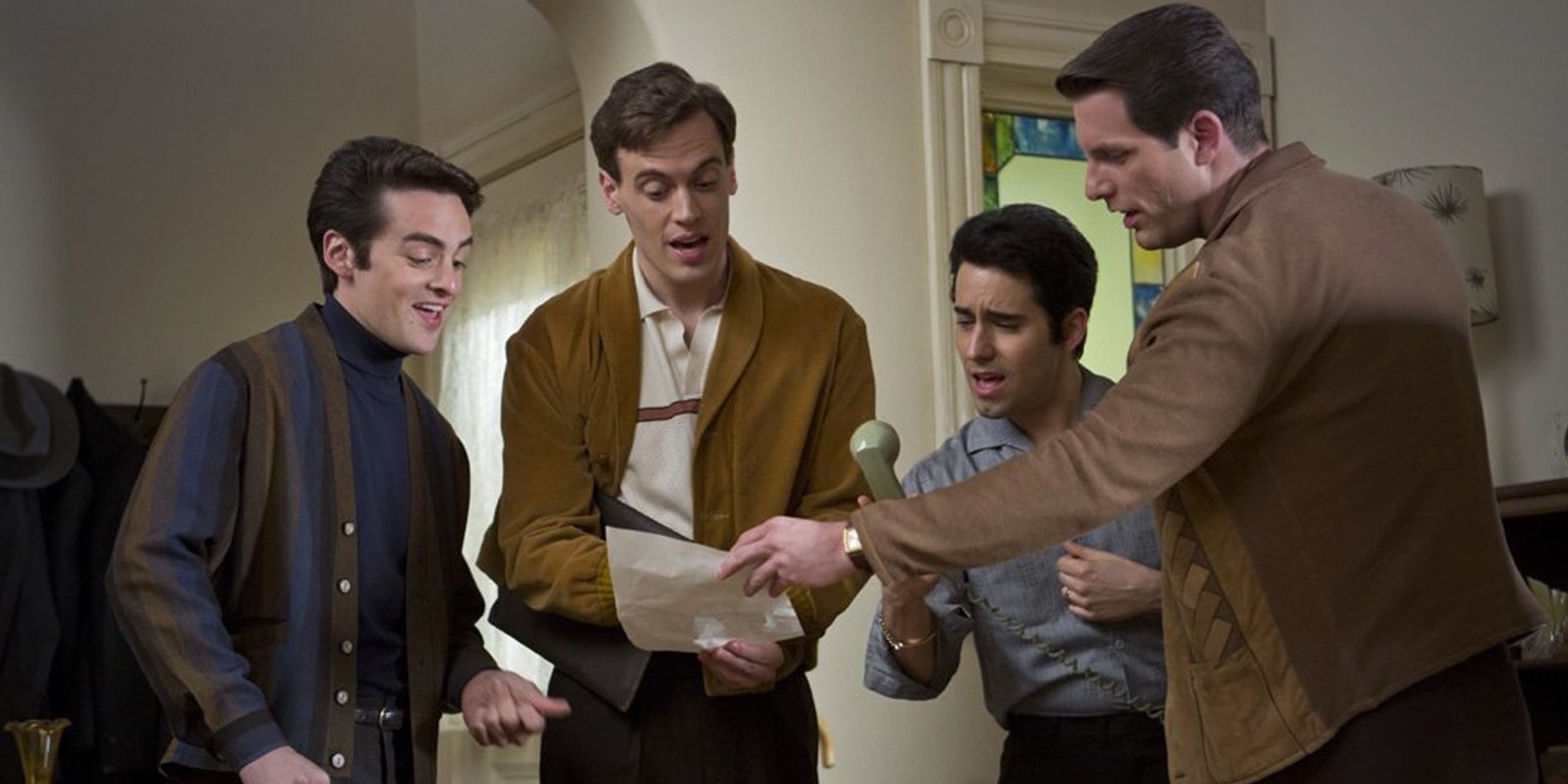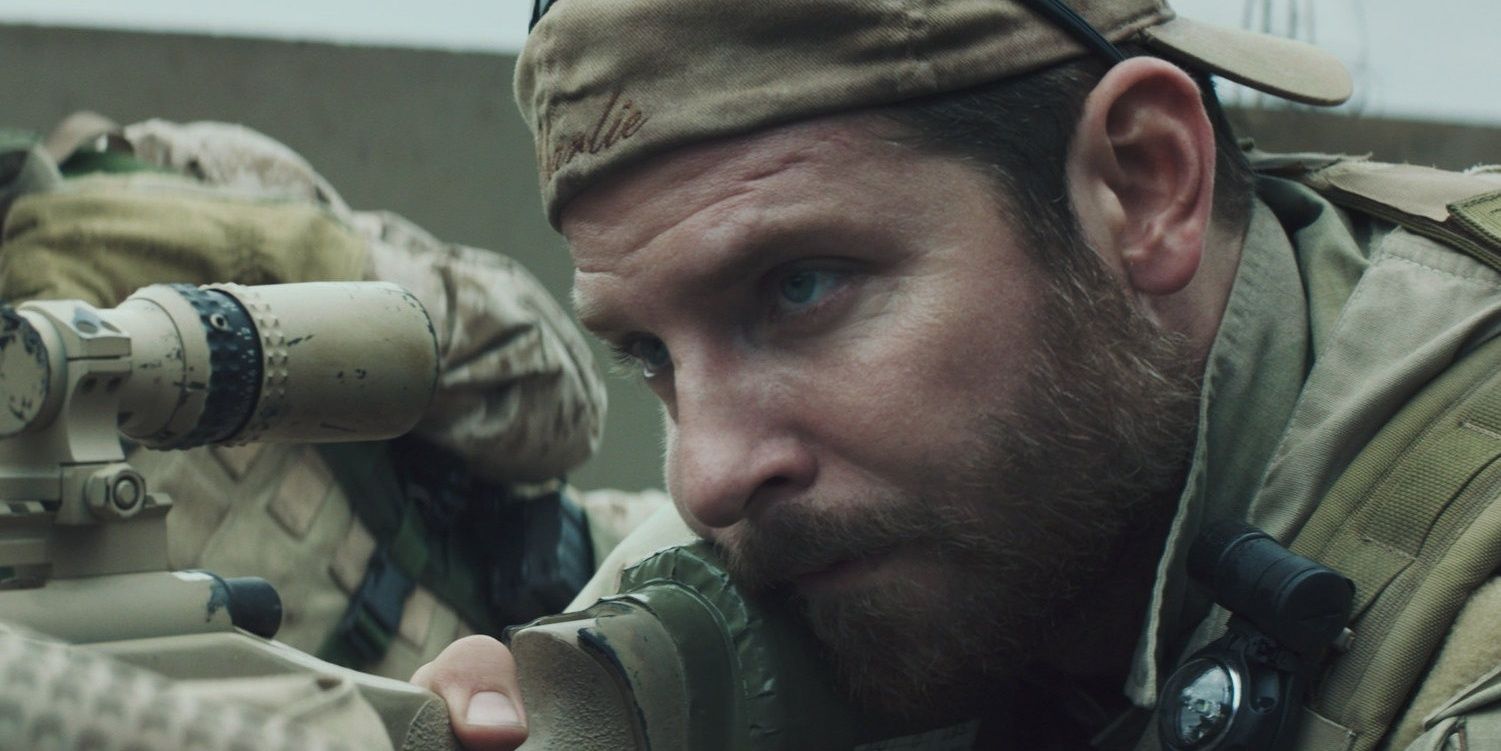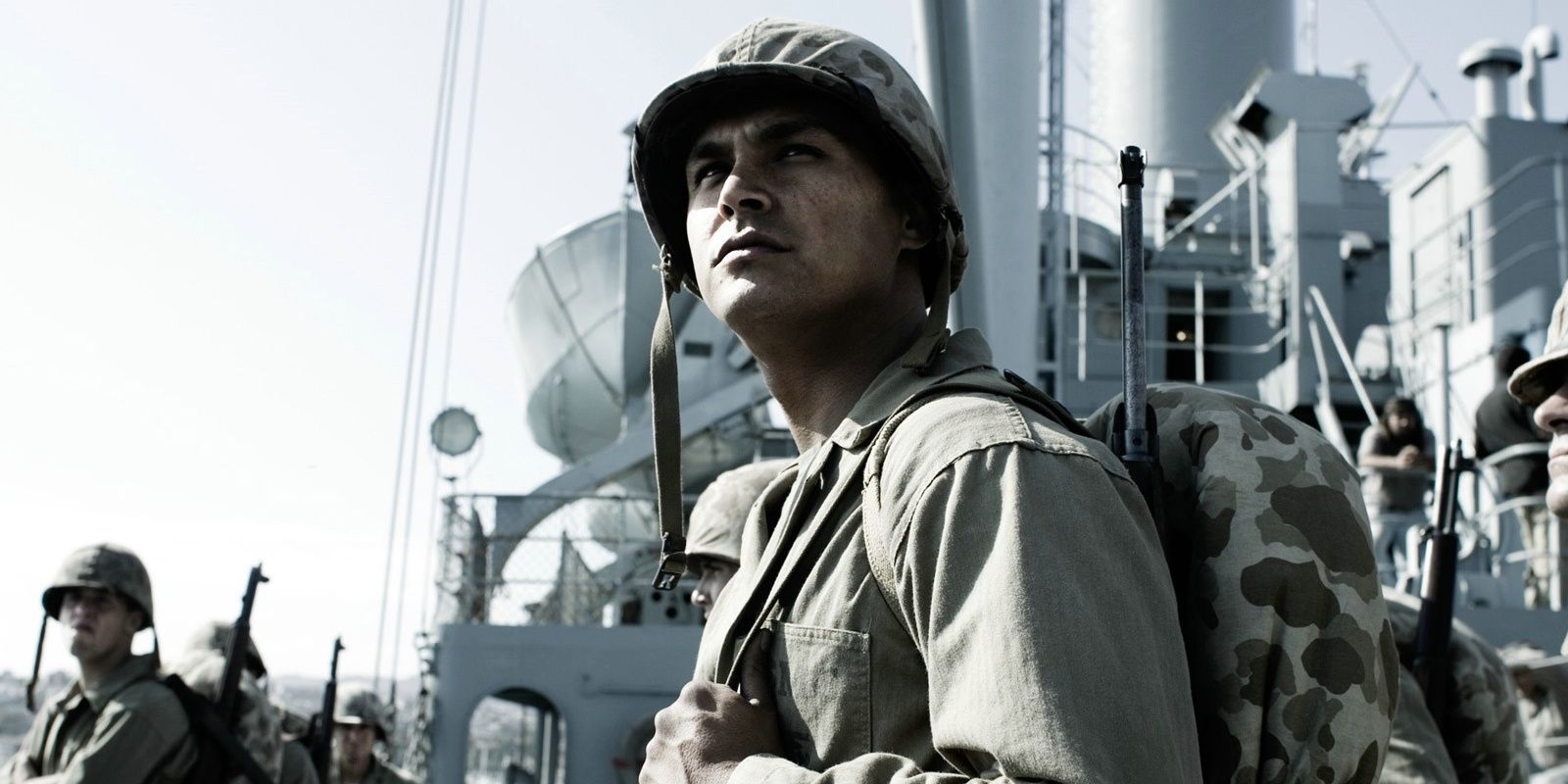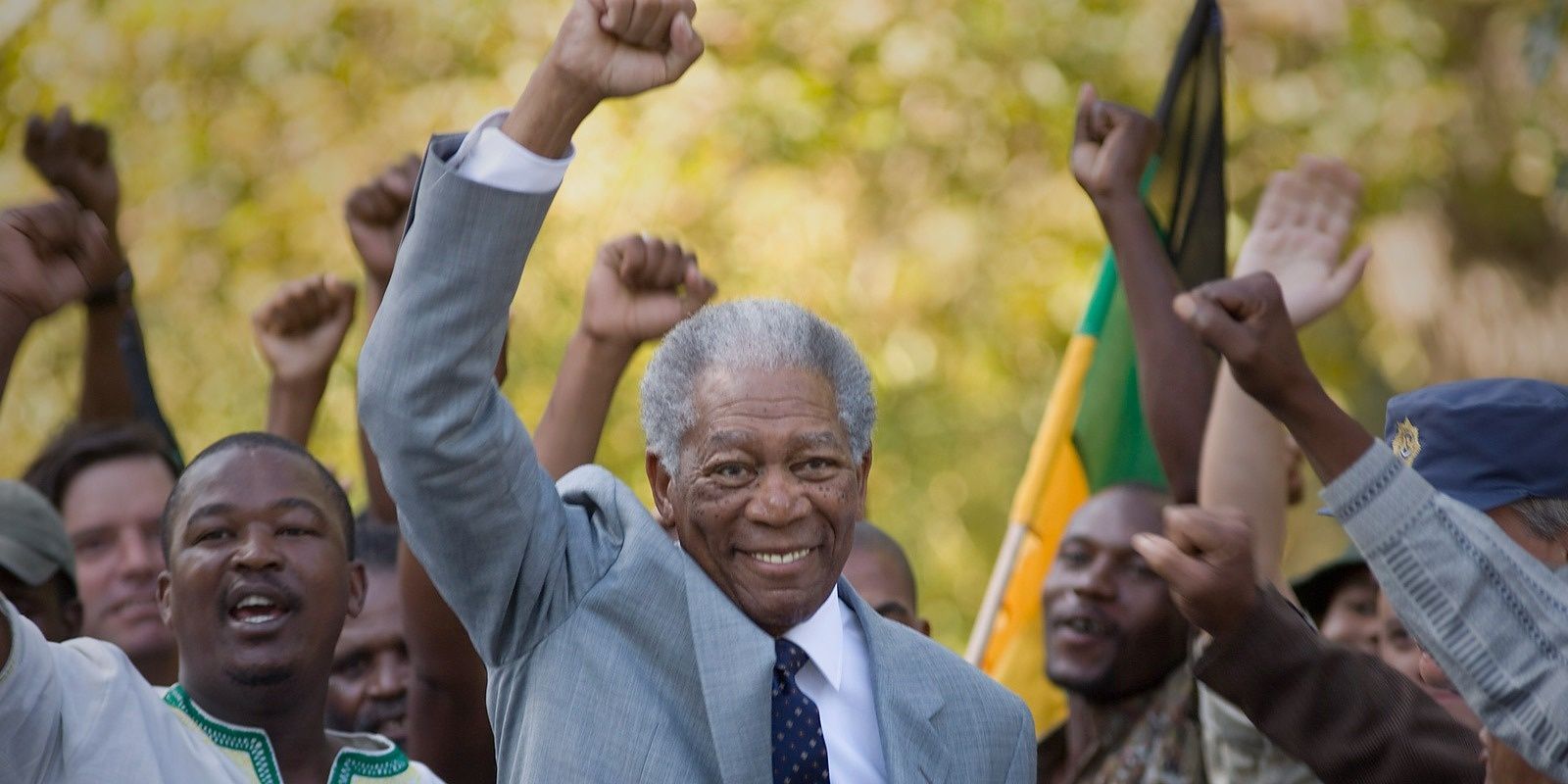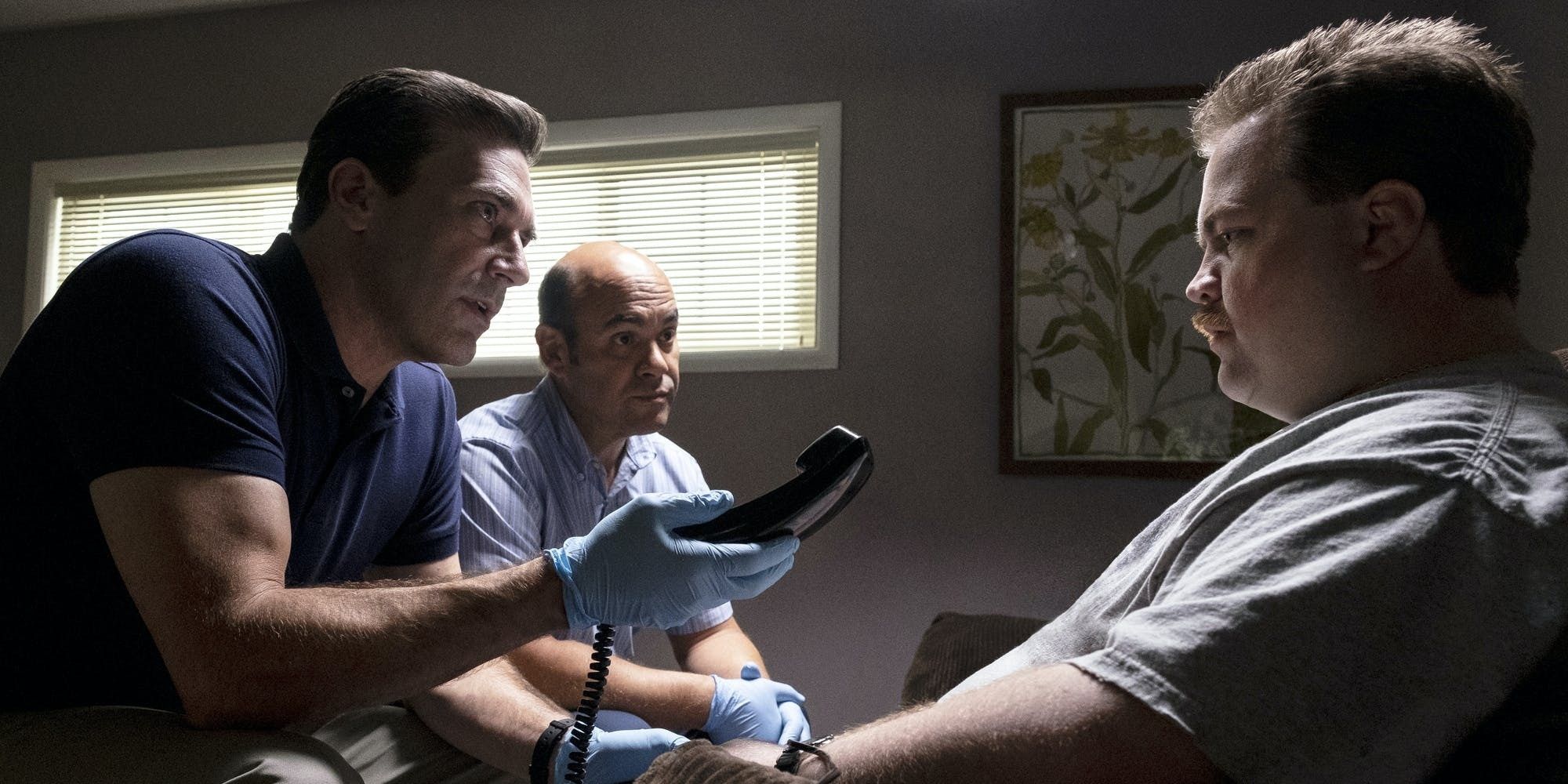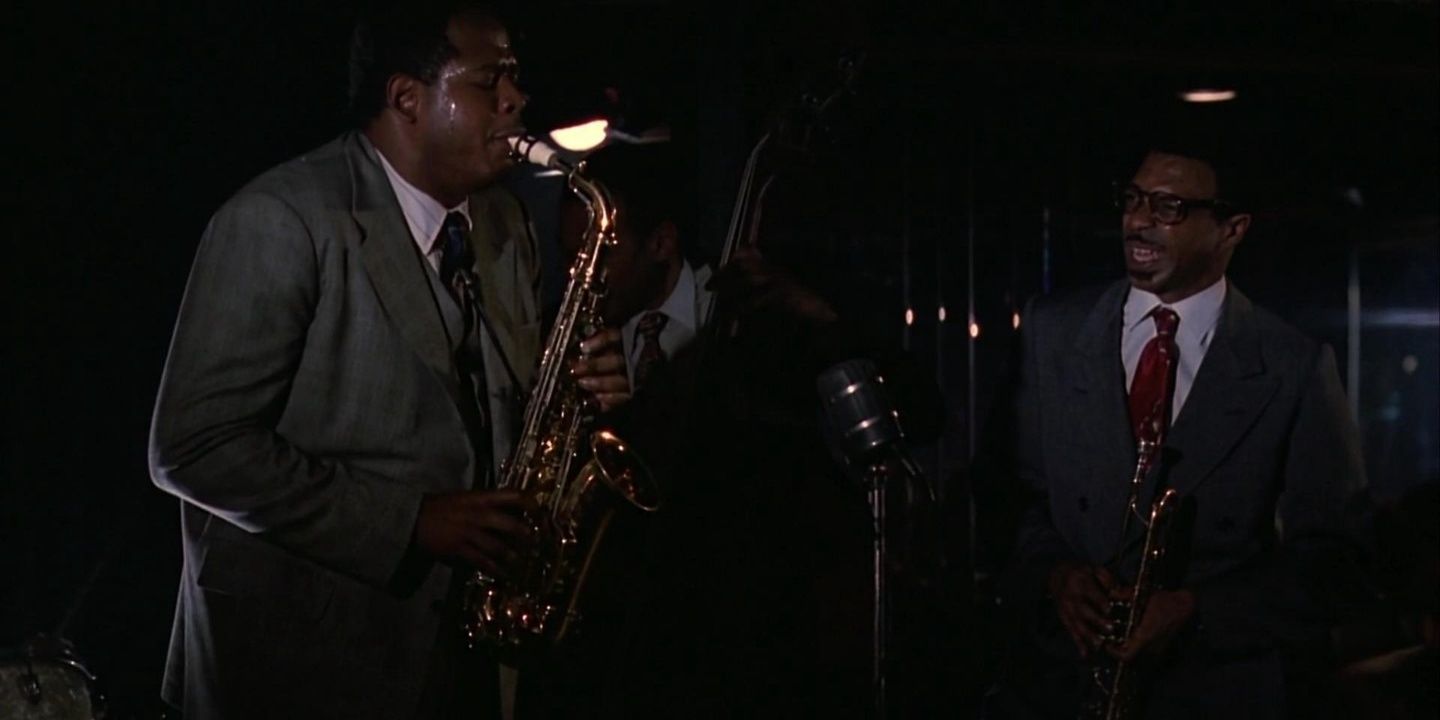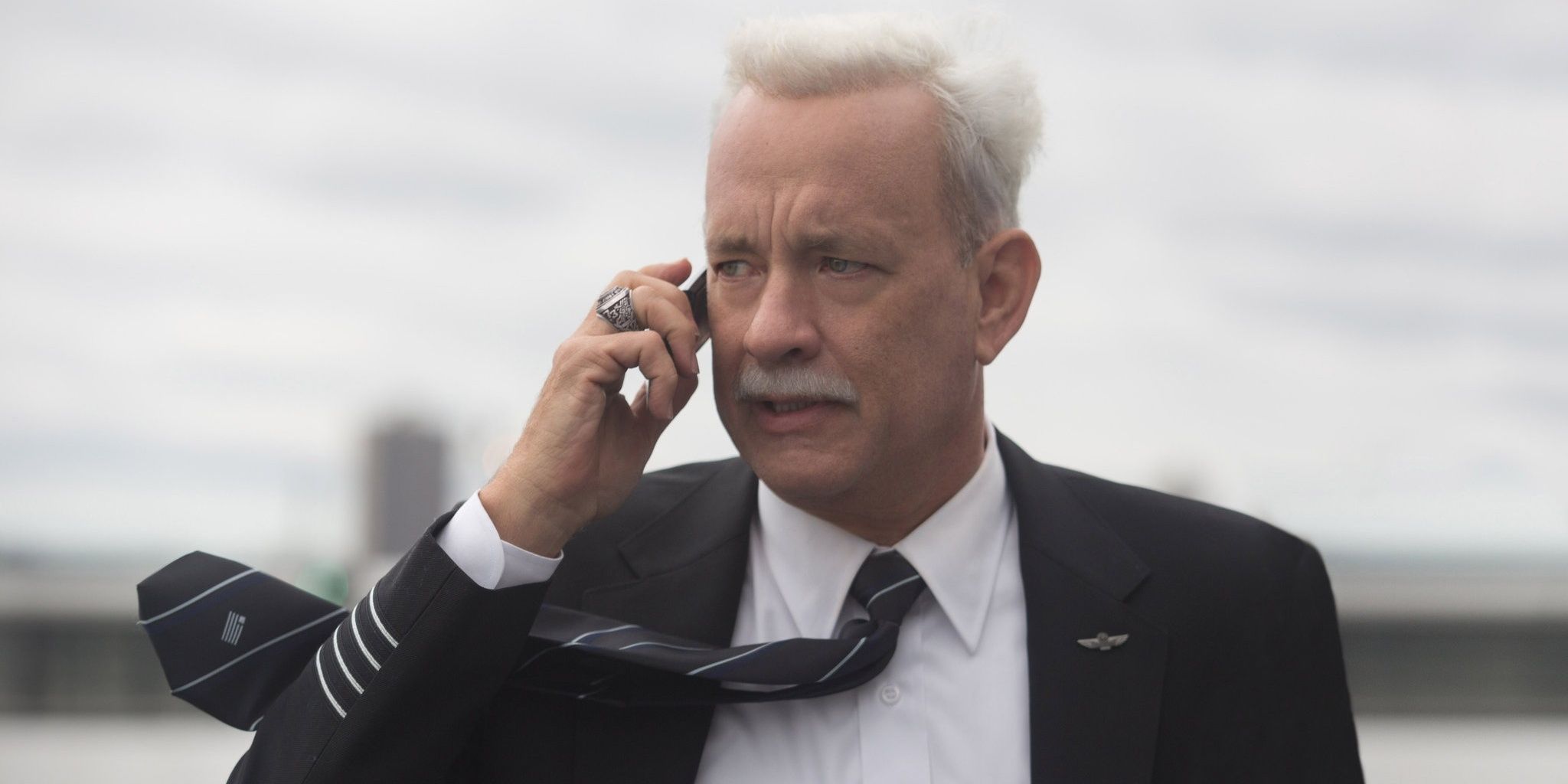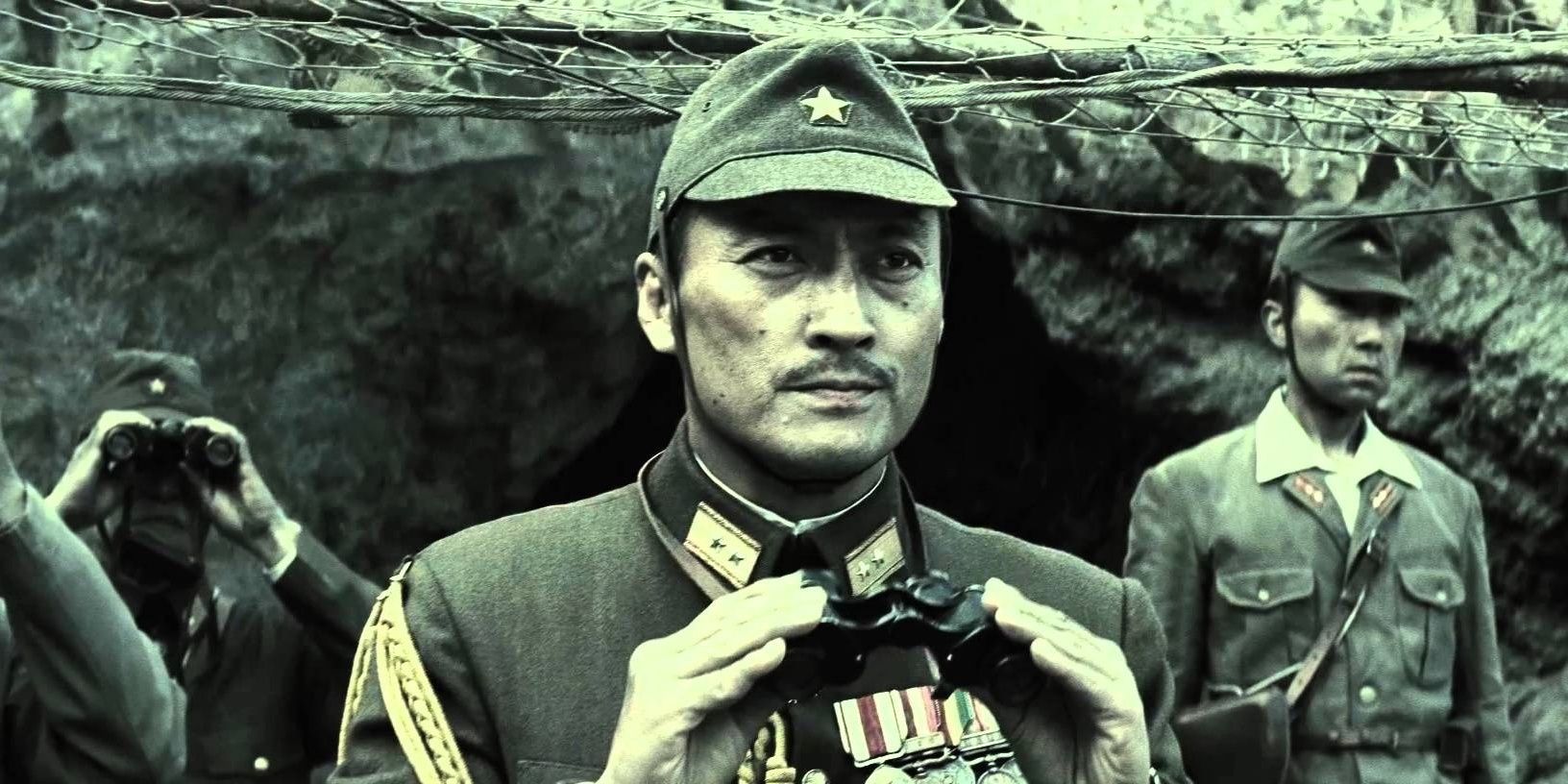Clint Eastwood has had a long illustrious career that is still going strong, having just wrapped his latest film, Cry Macho, at age 90. In addition to acting, Eastwood is known for being a great director, helming classics like Unforgiven and Million Dollar Baby, however, recently his attention has turned to the biopic genre for his movie-making output.
Eastwood has covered the lives of people as diverse as J. Edgar Hoover and Nelson Mandela. All of the subjects of his biopics are unique in their own way and Eastwood seems to be very interested in spotlighting people who do extraordinary things or act during extraordinary times.
The 15:17 To Paris - 23%
The 15:17 To Paris is a unique film in that it actually stars the real-life people on which the film is based. The movie is about the three soldiers who stopped a terrorist attack aboard an Amsterdam train bound for Paris in 2015.
However, critics and audiences pointed out that nothing very engaging happens for most of the movie. The film portrays the life of the men serving in the military, and then the events leading up to the attack, which includes them hanging out in Rome and eating gelato. The attack that they heroically prevent occurs briefly at the very end of the movie, and by then most audiences seemed to have checked out. Some critics enjoyed the real-life heroes playing themselves, while others felt their lack of acting experience showed.
J. Edgar - 43%
J. Edgar told the controversial life story of the former head of the FBI, J. Edgar Hoover. The script, written by Milk screenwriter Dustin Lance Black delves into many aspects of his life including his rumored sexual orientation. However, while Leonardo DiCaprio does his best as Hoover, his poor old-age makeup proved too distracting for audiences.
Also, critics felt the movie's narrative was jumbled and the dialogue clumsy. Despite these mixed reviews, DiCaprio's performance earned him a Golden Globe nomination, and the National Board Of Review listed it as one of 2011's best films.
Jersey Boys - 51%
Based on the Broadway jukebox musical, Jersey Boys tells the story of the musical group The Four Seasons, going from nobodies to stardom in the 1950s and 60s. For the film, Eastwood cast the actors who performed in the show on Broadway with the exception of Boardwalk Empire's Vincent Piazza, who is the stand out in the cast. Actor Christopher Walken also makes a memorable appearance as a mafioso.
However, critics found the movie to be uninspired storytelling, overly long, and overall, too safe. Unfortunately, despite being a massive broadway success, moviegoers didn't seem as interested in the movie version as it opened in fourth place at the box-office.
The Mule - 70%
Inspired by the life of Leo Sharp, The Mule tells the story of an 87-year-old drug mule played by Eastwood himself. Because of financial difficulties, Earl Stone becomes a "drug mule" transporting cocaine for a Mexican drug cartel while the DEA, headed up by Colin Bates (Bradley Cooper), is hot on his trail.
Critics generally praised the film, highlighting the great performance from the nearly 90-year old legend, while criticizing the film itself for being predictable. Audiences liked it though, eventually making $173 million on a $50 million budget.
American Sniper - 72%
With American Sniper, Clint Eastwood had his biggest hit to date. Bradley Cooper stars as the deadliest sniper in U.S military history, Chris Kyle, who served four tours in Iraq before being tragically murdered. The film was a huge box office hit, grossing $547 million making it 2014's highest-grossing movie, which is rare in a time when superhero movies usually dominate the box-office. It was a hit critically too, garnering Oscar nominations for Best Picture, Actor, and more.
However, while American Sniper was generally praised for its performances and thrilling direction, the movie garnered some controversy over its inaccuracies and for its use of a distracting baby doll substituting a real one in a scene involving Kyle's infant baby.
Flags Of Our Fathers - 73%
Eastwood's film Flags Of Our Fathers was about the Battle of Iwo Jima and, specifically, the raising of the flag by the soldiers who would become immortalized on the famous memorial statue and photo. The film detailed not only the event itself but the repercussions for the men involved, as it garnered them unwanted fame.
Flags Of Our Fathers received generally good reviews with critics hailing it as a great tribute to the real-life heroes even if it treads on familiar territory. Flags failed to make a dent at the box office, however, Eastwood wasn't done telling the story of the Battle of Iwo Jima.
Invictus - 76%
Invictus told the true story of the first Rugby World Cup in South Africa following the end of Apartheid and Nelson Mandela becoming President after his imprisonment on Robben Island. The film is an inspiring true story of how this game, which the South African team won, united a divided country.
Critics praised Morgan Freeman's performance as Mandela, a role he was born to play, and both he and Matt Damon were nominated for the Best Actor and Supporting Actor Oscars. Ultimately, the film performed well with audiences, raking in $122 million on a $6o million budget.
Richard Jewell - 77%
Richard Jewell told the story of how the titular character, a security guard, was wrongly accused of planting a bomb during the 1996 Summer Olympics when, in reality, he actually found the bomb and alerted people to evacuate, saving many lives.
Critics praised the performances of rising star Paul Walter Hauser and Sam Rockwell, who plays Jewell's lawyer. Kathy Bates plays Jewell's devoted mother and for her performance, received a Best Supporting Actress nomination. While the film garnered good reviews, it fared poorly at the box-office, not even being able to make back its $45 million budget.
Bird - 83%
Nowadays, Eastwood almost exclusively makes biopics, however, years before this particular era of his filmmaking, he made Bird in 1988. Bird starred Forest Whitaker as jazz saxophonist legend Charlie "Bird" Parker and chronicled his career's ups and downs before his eventual passing at age 34.
Eastwood's first biopic is dark, mature with fantastic music scenes and a great performance by Forest Whitaker who wasn't as big a star then as he is today. Ultimately, Whitaker won Best Actor at the Cannes Film Festival and Eastwood took home his first Golden Globe award for directing.
Sully - 85%
Sully tells the story of Captain Chesley "Sully" Sullenberger who famously landed a plane on the Hudson River following getting hit by a bird-strike. The film starred Tom Hanks as Sully and detailed the heroic landing as well as its aftermath.
The film received generally good reviews from critics who praised Hanks' performance, however, like 15:17 to Paris, felt this true story's length was padded out. Not only was it a hit with critics but with audiences as well, bringing in $240 million on a $60 million budget.
Letters From Iwo Jima - 91%
Eastwood's intent with making Flags Of Our Fathers was to tell both sides of the story. He wanted to depict the Battle of Iwo Jima from both the American and Japanese perspectives but realized he couldn't fit it all into one film, so he decided to shoot two separate films back to back. Letters follows a General (Ken Watanabe) and his men who know they have no chance of winning against the Americans but fight anyway for the honor of their country.
After Flags Of Our Fathers' commercial failure, Eastwood rebounded just two months later with Letters and the result was an even bigger critical hit and a slightly better commercial hit. Critics called it thought-provoking and hailed it for not spotlighting the differences between the Japanese and the Americans but, instead, focusing on how much they are the same. Many have gone further to call it a masterpiece and one of the best World War II films ever made. Ultimately, it was nominated for Best Screenplay, Best Picture, and Best Director for Eastwood at the Oscars that year.

